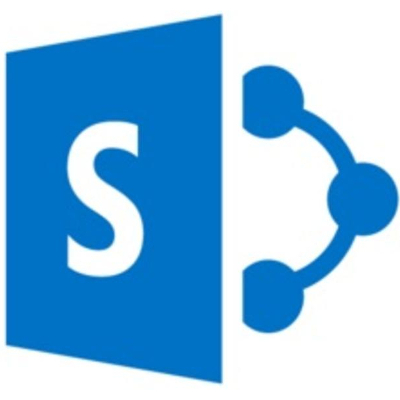Microsoft SharePoint Makes Team Collaboration Easy

Businesses are taking advantage of new tools every day to make sure that their projects are handled in the most successful way possible. One of these tools is Microsoft SharePoint, which can eliminate many of the major pain points of project management. Regardless of what type of business you run, we’re confident that Microsoft SharePoint can be a valuable asset for your organization. Here are three ways you can take advantage of SharePoint.
In case you’re unfamiliar with SharePoint, it’s a browser-based method of collaboration and document management. You can either host it on your own premises, or in the cloud so that you can access it anywhere. It’s one of the enterprise-level solutions offered by the Microsoft Office 365 productivity suite. Basically, it provides project team members with a place to view information or collaborate. It even integrates with Office 365 so that it’s simple to deploy any Office applications with ease.
Create Your View of Success
There is always going to be a goal for your projects. SharePoint is designed to help an organization meet the specific goals of that project, and it can do so by providing you with a measure of success as defined by the individual project goals. The best way to find success with SharePoint is to always keep your definition of success in mind, but never change it. If you meet your goals, you want to view it as a success. SharePoint’s most incredible benefit is that it can help you build efficiency, and defining success accurately is the best way to make this happen.
Properly Use SharePoint for YOUR Business
Knowing what your business will use SharePoint for before implementation is key to your success with the program. Your SharePoint platform will inevitably contain a considerable amount of content. The question, however, is if your project has enough content to justify using SharePoint as a platform. It’s important to work with an IT service provider before going all-in on a service like SharePoint.
Train your Staff
SharePoint is an incredible tool that you’ll want to use to store content, deploy applications, and provide custom access to all of your services. It’s the ideal way to provide each of your project managers and resources with everything they need to do their jobs, but only if they know how it works. It takes significant training to make sure that your employees know how to complete their tasks. Doing this ensures that your organization can be successful with SharePoint.
Do you want to make sure that your SharePoint implementation goes as smoothly as possible? If so, reach out to Catalyst Technology Group at (317) 705-0333.
Network Security Needs To Be A Team Effort

Network security is more than just a conscientious attempt by your staff to protect your organization’s digital assets. It’s making sure that your employees know how to handle dangerous situations, implementing preventative IT measures to eliminate potential issues entirely, and having the right technology experts on-hand to handle tough problems that can’t be solved by a few pieces of technology.
To begin, let’s take a look at what role your organization’s IT department plays in the overall security of your business’ infrastructure. We’ll then move on to how the average employee can reinforce network security, and how outsourced help can be beneficial.
Your Internal IT (If Any)
First, the responsibilities of your IT department must be considered. Ordinarily, your IT department would be responsible for tasks such as monitoring your network, installing patches and security updates, and general upkeep of your technology systems. Of course, that assumes that you even have an IT department in the first place, which not a lot of small businesses have. The expense of hiring in-house technicians can add quite a bit of strain to your budget that you may not be able to afford. Or, worse yet, you leave all of the technology-related maintenance to your ordinary employees who have other jobs and responsibilities. This not only takes time away from your business’ busy employees, but also compromises security, as tasks may be rushed or performed wrong entirely.
What Your Employees Can Do
Even if you do have an internal IT department, your employees can practice certain security practices to ensure that they don’t contribute to your business’ troubles. Many issues concerning network security are caused by user error, such as clicking on the wrong link or downloading the wrong attachment. Furthermore, passwords–one of the most critical parts of any security protocol–are often created in such a way that they aren’t secure enough. Passwords should be long and complex, utilizing combinations of both upper and lower-case letters, along with numbers and symbols. They also shouldn’t be the same across the organization, or shared with others. Reinforce that your employees also be wary of any suspicious messages in their inboxes, and advise them to report anything strange or out of place to your IT department.
What You Can Do
Even if you do have an internal IT department, they might be so swamped with work that they don’t have the time to reinforce your network security. On the other hand, if they are dedicated to ensuring the security of your network, they may not have time to deal with the more routine tasks, like assisting with technology troubles or help desk support. Outsourcing your security, as well as general maintenance for your infrastructure, is a great way to assist your internal team with day-to-day responsibilities. Think of it as a way to resolve any bottlenecks that they may be running into, be it a lack of time to properly monitor your network security, or a lack of availability to resolve in-house employee technical difficulties. It’s just one way that outsourced IT solutions can help your business protect itself in the long run.
Does your organization need assistance with IT security? Catalyst Technology Group can help you augment your security capabilities through the use of managed IT services. To learn more about how we can keep your organization secure, reach out to us at (317) 705-0333.

